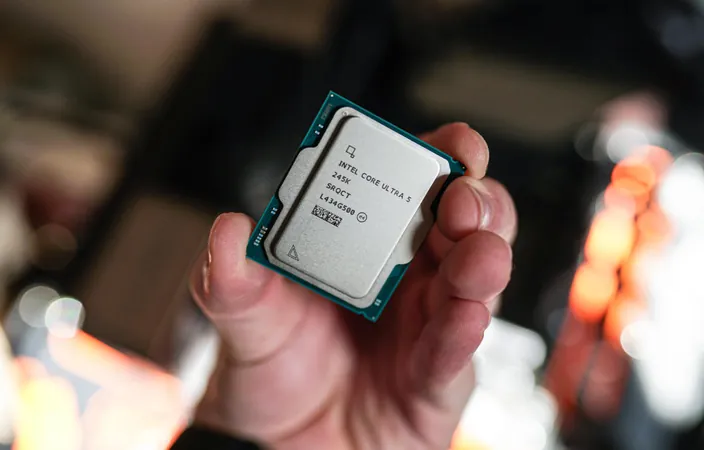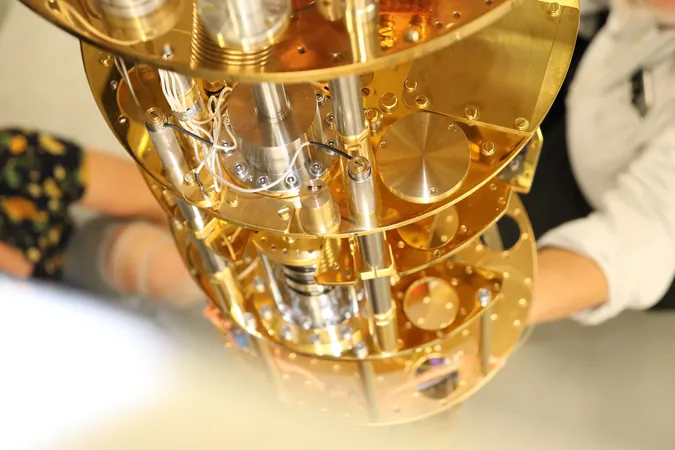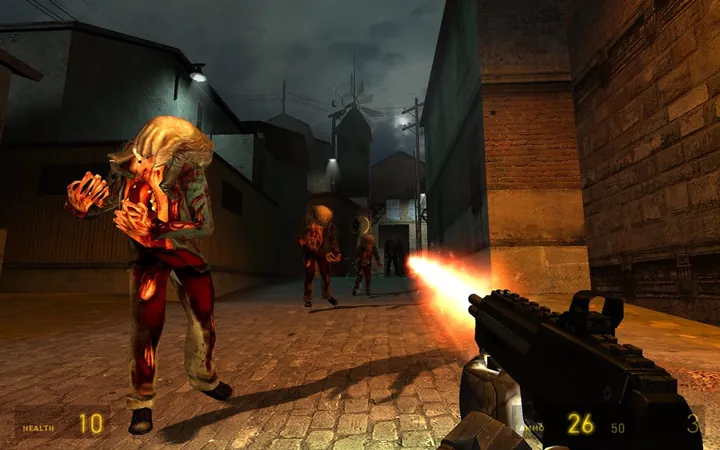
CPU Conundrum: How 2024’s Processors Let Down PC Gamers
2024-12-31
Author: Rajesh
In 2024, a lot was expected from the latest processors released by AMD and Intel; however, the excitement quickly fizzled out. Typically, a new generation of CPUs promises to revolutionize performance and redefine the gaming experience. Unfortunately, both AMD and Intel launched their new architectures, Zen 5 and Arrow Lake, respectively, but the anticipated transformative leap just did not materialize.
AMD's Missed Opportunity: The Ryzen 9000 Series
AMD initiated the year's CPU showdown with its Ryzen 9000 line, built on the innovative Zen 5 architecture. The company had vowed to deliver substantial efficiency improvements and excellent gaming performance, particularly with standout models like the Ryzen 9 9950X and the Ryzen 7 9700X. With AMD launching multiple desktop and mobile variants in rapid succession, gamers eagerly anticipated the performance leap.
To deliver on its promised new foundation, AMD brought enhancements like a 512-bit data path for AVX-512 instructions, which was hailed as a game-changer for artificial intelligence workloads and other high-performance tasks. However, disappointing performance results soon followed. Despite achieving better productivity scores in applications, the Ryzen 9000 series struggled to surpass Intel's 14th-gen CPUs, particularly the Core i9-14900K, which remained a performance benchmark.
Gamers were particularly let down when benchmarks revealed that the Ryzen 9000 series offered similar performance to its less expensive predecessor, the Ryzen 7000 series. Even the last-gen Ryzen 7 7800X3D remained a top contender, leaving gamers with little justification to upgrade. Despite AMD's attempts to enhance performance through updates and addressing latency concerns, the struggle to compete with existing top-tier CPUs only highlighted the Ryzen family’s mediocrity in the gaming sphere.
Intel's Stumble: The Arrow Lake Experience
Intel, not to be outdone, introduced its Arrow Lake processors in an attempt to leapfrog ahead. Centered around a new architecture aimed at efficiency, the flagship Core Ultra 9 285K emerged. Unfortunately, while there were significant improvements in laptop performance, these benefits fell flat in desktop setups.
The Arrow Lake series was an ambitious attempt to adapt mobile architecture for desktop CPUs, an endeavor that backfired. Rather than producing impressive gains, many users experienced lackluster performance comparably worse than older Intel models. Gamers, in particular, were dismayed to find that previous-generation chips provided better performance. Intel's focus on efficient core designs worked well in laptops where battery life was essential, but failed to translate to high-end desktop performance where thermal management isn’t a limitation.
A Gaming Landscape in Turmoil
Both AMD and Intel seem to have designed their new architectures primarily with mobile devices in mind. This raises questions about the priorities of both companies—while laptops are transitioning towards high-efficiency chips capable of impressive battery life, desktop users were left grappling with the fallout.
Enter Microsoft and Qualcomm’s Copilot+ initiative, introducing a wave of laptops that promise performance enhancements with AI capabilities and longer battery life, leaving traditional desktop CPUs looking outdated. With performance stagnating on the desktop front and a slew of issues plaguing the release of both Ryzen 9000 and Arrow Lake architectures, PC gamers are left feeling abandoned.
Conclusion: The Search for Upgrades and Alternatives
For gamers peering into 2024 with anticipation, both AMD and Intel's latest offerings have turned out to be mere teases. With the specter of last-generation performance looming overhead, players might find their best option in the preceding models rather than their successors. The stark reality is that if you were waiting for the next big upgrade, Zen 5 and Arrow Lake might not deliver the gaming revolution you were hoping for. In light of the current circumstances, the search for suitable alternatives continues, as PC gamers seek processors that don't just promise but deliver.


 Brasil (PT)
Brasil (PT)
 Canada (EN)
Canada (EN)
 Chile (ES)
Chile (ES)
 Česko (CS)
Česko (CS)
 대한민국 (KO)
대한민국 (KO)
 España (ES)
España (ES)
 France (FR)
France (FR)
 Hong Kong (EN)
Hong Kong (EN)
 Italia (IT)
Italia (IT)
 日本 (JA)
日本 (JA)
 Magyarország (HU)
Magyarország (HU)
 Norge (NO)
Norge (NO)
 Polska (PL)
Polska (PL)
 Schweiz (DE)
Schweiz (DE)
 Singapore (EN)
Singapore (EN)
 Sverige (SV)
Sverige (SV)
 Suomi (FI)
Suomi (FI)
 Türkiye (TR)
Türkiye (TR)
 الإمارات العربية المتحدة (AR)
الإمارات العربية المتحدة (AR)